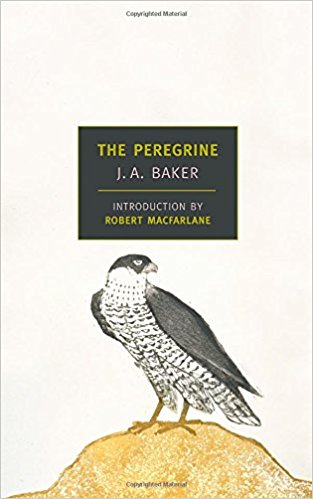 A few months ago David Bentley Hart published an article in First Things in which he recommended twenty-five fairly obscure books that should be read. The first he mentioned was J.A. Baker’s The Peregrine. I decided to check it out and I’m glad I did.
A few months ago David Bentley Hart published an article in First Things in which he recommended twenty-five fairly obscure books that should be read. The first he mentioned was J.A. Baker’s The Peregrine. I decided to check it out and I’m glad I did.
The Peregrine consists essentially of excerpts from J.A. Baker’s journals chronicling what can only be described as his obsession with Peregrine falcons. One might wonder why, then, this book has such a strong cult following. How exciting can one man’s observations of birds be?
As it turns out, it can be quite exciting and unsettling and thought-provoking indeed.
The Peregrine is hailed for its haunting and sometimes transcendent use of language, and rightfully so. It is an absolutely stunning book in terms of its language and there are some amazing passages of very unusual descriptive force. Lovers of words will find themselves caught up in Baker’s tremendous linguistic craftsmanship.
Then there is the commentary on man. The Peregrine could almost be seen as a jeremiad against the destructive capabilities and foolishness of man. The book is seen by many as a classic and critically important environmentalist text. Baker was writing at a time when the Peregrine was being obliterated through environmentally hazardous farming practices. These, along with a temporary all-out assault on the Peregrine by the British government in the form of appeals to the population to kill the bird because the falcons were killing homing pigeons carrying crucial war-time information, took the bird to the very brink of extinction in England. This threat of extinction for the bird is a situation that, happily, is no longer the case, but when Baker wrote he was juxtaposing the majesty of these birds with the callous cruelty of man. There are chilling passages and bleak passages that go beyond pessimism into something like an anthropology of loathing. Baker famously proclaims that animals fear man because we, not they, are the true killers in the world.
Finally, there is Baker himself. Baker sounds as if he was a fairly reclusive individual (to an extent). He battled crippling arthritis that wreaked havoc in his body. There are unsettling passages in the book in which Baker seems to be identifying with the Peregrine to an degree that is almost alarming. He seems, at times, to see himself as a falcon and he certainly appears very much to wish he could be one. There is an obsessive quality to all of this that flirts with the manic. I was not surprised to learn that filmmaker Werner Herzog loves this book. It is the kind of thing Herzog would love and it is reminiscent of the story of Timothy Treadwell that Herzog told in his film “Grizzly Man.”
Suffice it to say, this is not merely a story about birds, though, if it was, Baker’s handling of it would still be worthy of deep and careful consideration. It is a story about nature, human and animal, and about the world as it is and as it could be. It is also autobiographical in a subversive and surprising way. One feels that one understands Baker after reading this book in a way that one could not had this been a straight-forward autobiography.
This is a beautiful and haunting work of art. Read it.

Pingback: Book Review Index | Walking Together Ministries